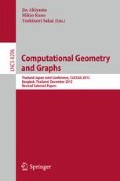Abstract
Janken, which is a very simple game and it is usually used as a coin-toss in Japan, originated in China, and many variants are seen throughout the world. A variant of janken can be represented by a tournament, where a vertex corresponds a sign and an arc (x,y) means sign x defeats sign y. However, not all tournaments define useful janken variants, i.e., some janken variants may include a useless sign, which is strictly inferior than another sign in any case. We first shows that for any positive integer n except 2 and 4, we can construct a janken variant with n signs without useless signs. Next we introduces a measure of amusement of janken variants by using the variation of the difference of out-degree and in-degree. Under this measure, we show that a janken variant has the best amusement among ones with n signs if and only if it corresponds to one of the tournaments defined by J. W. Moon in 1993. Following these results, we present a janken variant “King-fles-janken,” which is the best amusing janken variant among ones with five signs.
Access this chapter
Tax calculation will be finalised at checkout
Purchases are for personal use only
Preview
Unable to display preview. Download preview PDF.
References
Chartrand, G., Lesniak, L., Zhang, P.: Graphs & Digraphs, 5th edn. CRC Press (2011)
Fisher, D.C., Ryan, J.: Tournament games and positive tournaments. Journal of Graph Theory 19, 217–236 (1995)
Moon, J.W.: Topics on Tournaments. Holt, Rinehart and Winston (1968)
Moon, J.W.: Uncovered nodes and 3-cycles in tournaments. Australasian Journal of Combinatorics 7, 157–173 (1993)
Ohbayashi, T., Kishino, U., Sougawa, T., Yamashita, S. (eds.): Encyclopedia of Ethnic Play and Games. Taishukan Shoten (1998) (in Japanese)
Nisan, N., Roughgarden, T., Tardos, E., Vazirani, V. (eds.): Algorithmic Game Theory. Cambridge University Press (2007)
Rock-paper-scissors, in Wikipedia, http://en.wikipedia.org/wiki/Rock-paper-scissors
Author information
Authors and Affiliations
Editor information
Editors and Affiliations
Rights and permissions
Copyright information
© 2013 Springer-Verlag Berlin Heidelberg
About this paper
Cite this paper
Ito, H. (2013). How to Generalize Janken – Rock-Paper-Scissors-King-Flea. In: Akiyama, J., Kano, M., Sakai, T. (eds) Computational Geometry and Graphs. TJJCCGG 2012. Lecture Notes in Computer Science, vol 8296. Springer, Berlin, Heidelberg. https://doi.org/10.1007/978-3-642-45281-9_8
Download citation
DOI: https://doi.org/10.1007/978-3-642-45281-9_8
Publisher Name: Springer, Berlin, Heidelberg
Print ISBN: 978-3-642-45280-2
Online ISBN: 978-3-642-45281-9
eBook Packages: Computer ScienceComputer Science (R0)

